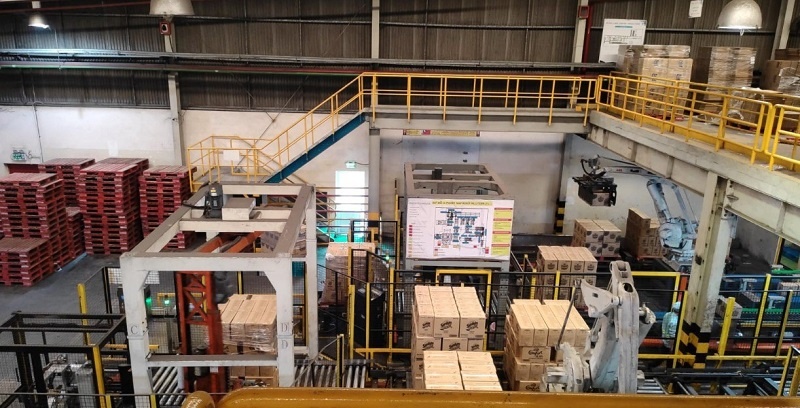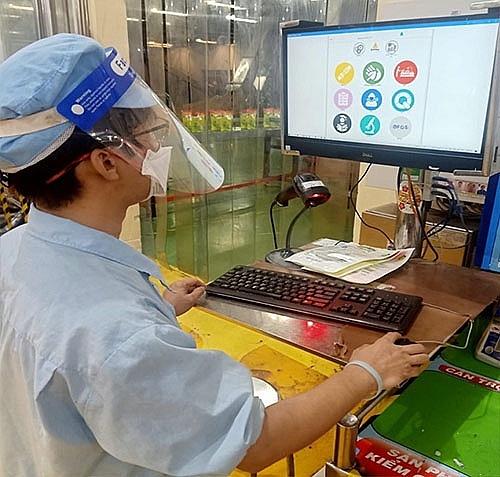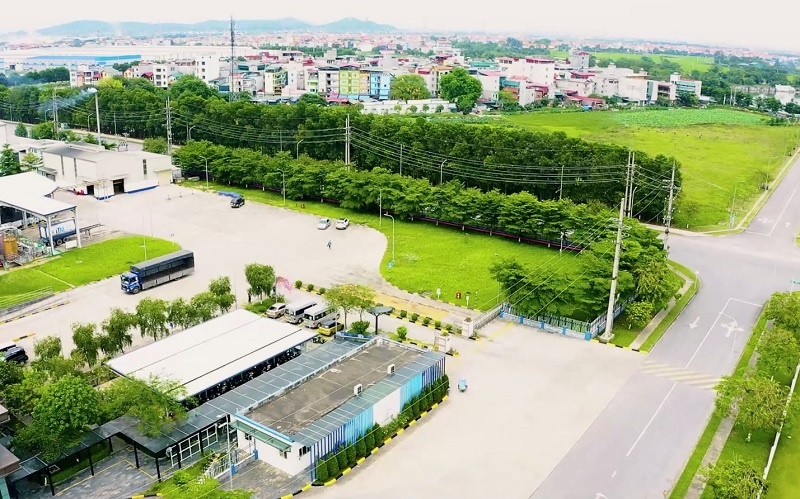Digital transformation to equip factory employees with future-fit skills
 |
| Smart automation and robotic processes at Unilever Vietnam. |
Two factories owned by Unilever Vietnam, one located in the northern province of Bac Ninh and the other in Cu Chi district in Ho Chi Minh City, have built and implemented a roadmap for modernisation and digital transformation since 2018 with goals for 2024.
In the first phase from 2018 to 2019, those factories made the transition from manual manufacturing, operations, and discrete data management to smart automation and robotics. These changes came with the application of basic digitised work management tools to collect and visualise data, underpinning the 4.0 advancement to improve capacity.
In the period from 2020 to 2021, Unilever Vietnam’s factories strived to promote smart automation and robotic processes in production activities, particularly serving product packaging and delivery.
Data management and usage processes have been upgraded with an IoT system and AI through a super application that allows all employees and plant managers to interact, monitor operations and performance, and detect any losses that may occur at all equipment in the factories.
It also facilitates real-time recording and synchronisation of all feedback and information on an AI system for timely data analysis and processing.
This underpins and accelerates the process of data analysis and forecasting, thereby further improving operational efficiency and the anticipation of future trends.
In the period from 2022 to 2024, Unilever Vietnam's factories will gradually apply complete machine learning and big data to production and operations, aiming to achieve 100 per cent smart automation by 2024.
Improve efficiency by equipping people with future-fit skills
 |
| Future-fit upskilling for Unilever Vietnam’s employees |
The digitalisation process in Unilever Vietnam's factories helps achieve efficiency, innovation, and positioning for the business, together with promoting digital and technical skill development for the workforce.
Smart automation solutions, the use of robots, and machine learning all play an important role in accelerating the pace of innovation and optimising the production process.
Specifically, Unilever Vietnam’s factories have increased the efficiency and speed of delivery for all brands’ products. This contributes to a faster response to changing consumer needs, thereby enhancing Unilever's competitive position in the market.
In addition, the application of technology and digitalisation also opens up opportunities to learn and develop digital transformation skills for their employees, transitioning from manual operations to robotic usage and, going further, being able to analyse data and design algorithms for automation systems.
 |
| Unilever Vietnam strives to build green factories through technology and innovation |
The Cu Chi and Bac Ninh factories currently have a team of IoT and data engineers, and 100 per cent of employees have been trained and are fully proficient in operating the automation processes in the factory.
After four years of training, coaching, and practical application, the engineering team at Unilever Vietnam are able to design and program new smart automated systems, and all of the technical employees are capable of performing maintenance on existing systems.
The power of technology is also having a positive impact on the environment. With the application of innovation, science, and technology, Unilever Vietnam's factories have pioneered in converting from fossil fuels to renewable energy, making the commitment to use biomass fuel sources and solar power to reduce CO2 emissions.
What the stars mean:
★ Poor ★ ★ Promising ★★★ Good ★★★★ Very good ★★★★★ Exceptional
Related Contents
Latest News
More News
- The generics industry: unlocking new growth drivers (February 04, 2026 | 17:39)
- Vietnam ready to increase purchases of US goods (February 04, 2026 | 15:55)
- Steel industry faces challenges in 2026 (February 03, 2026 | 17:20)
- State corporations poised to drive 2026 growth (February 03, 2026 | 13:58)
- Why high-tech talent will define Vietnam’s growth (February 02, 2026 | 10:47)
- FMCG resilience amid varying storms (February 02, 2026 | 10:00)
- Customs reforms strengthen business confidence, support trade growth (February 01, 2026 | 08:20)
- Vietnam and US to launch sixth trade negotiation round (January 30, 2026 | 15:19)
- Digital publishing emerges as key growth driver in Vietnam (January 30, 2026 | 10:59)
- EVN signs key contract for Tri An hydropower expansion (January 30, 2026 | 10:57)

 Tag:
Tag:



















 Mobile Version
Mobile Version